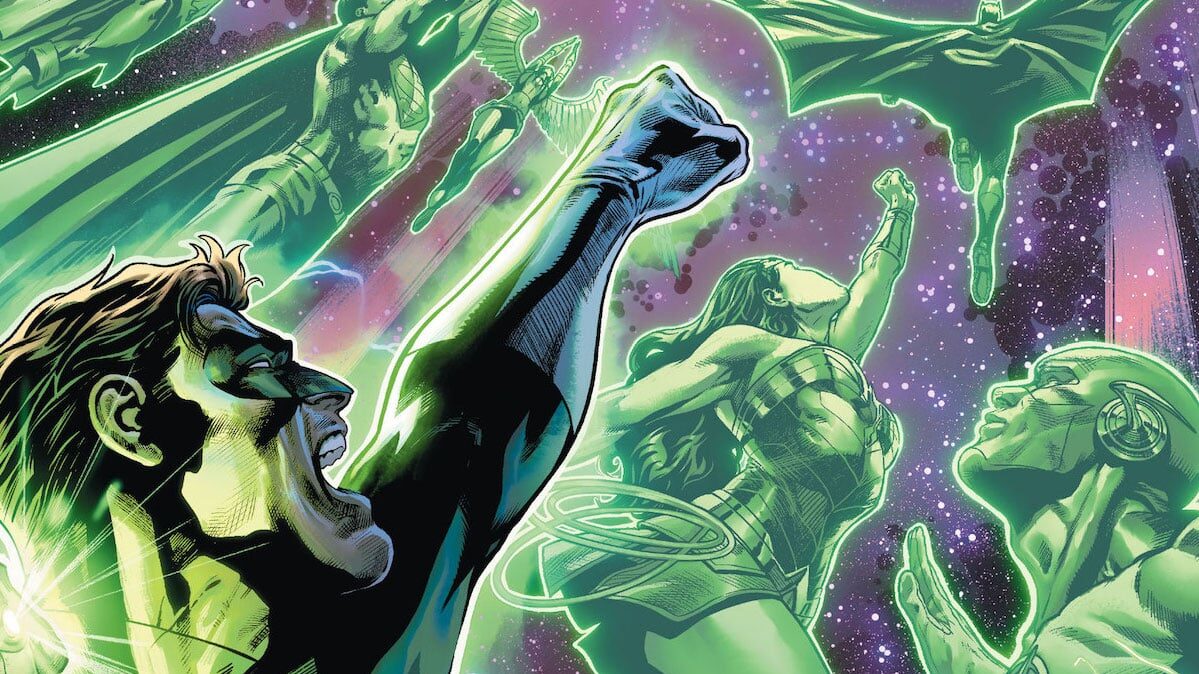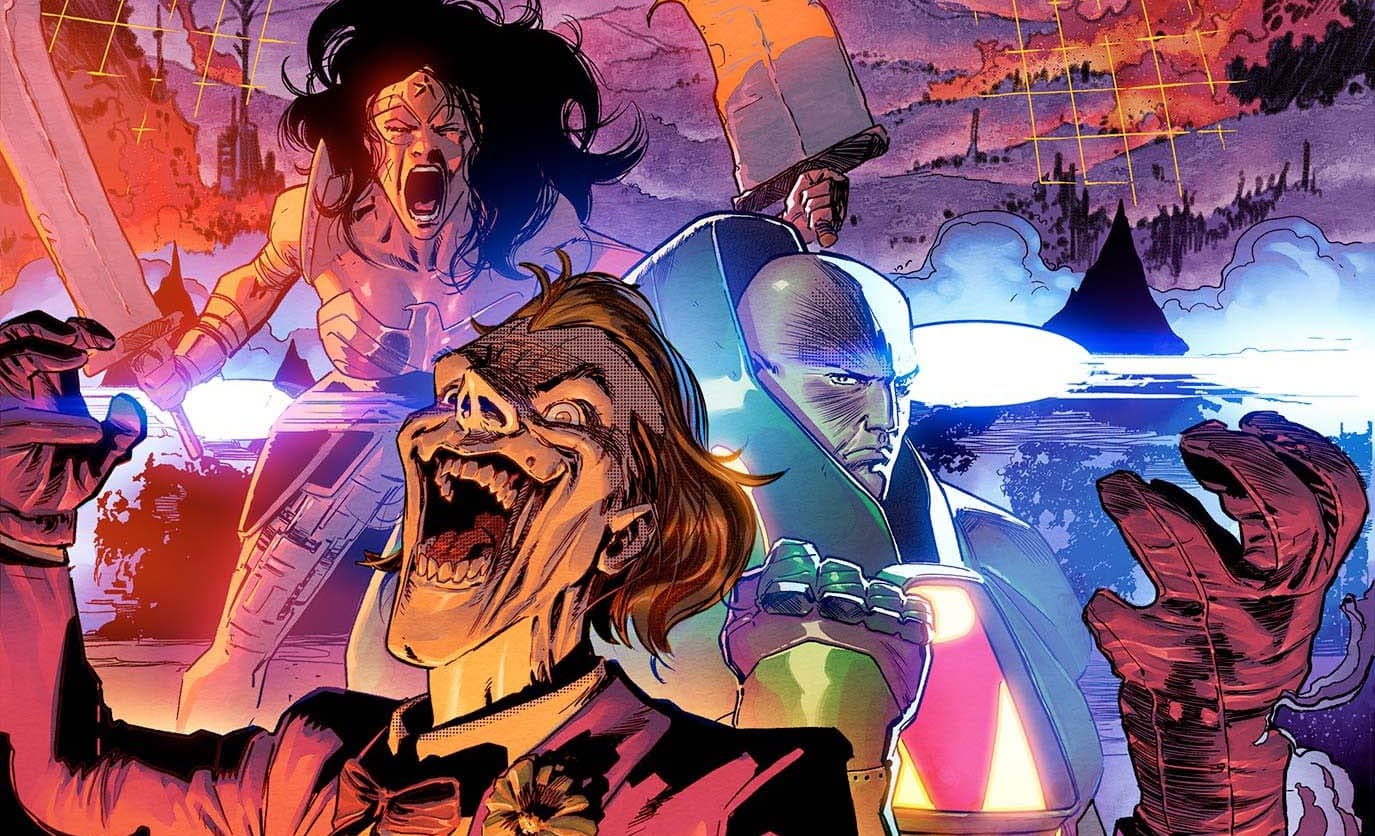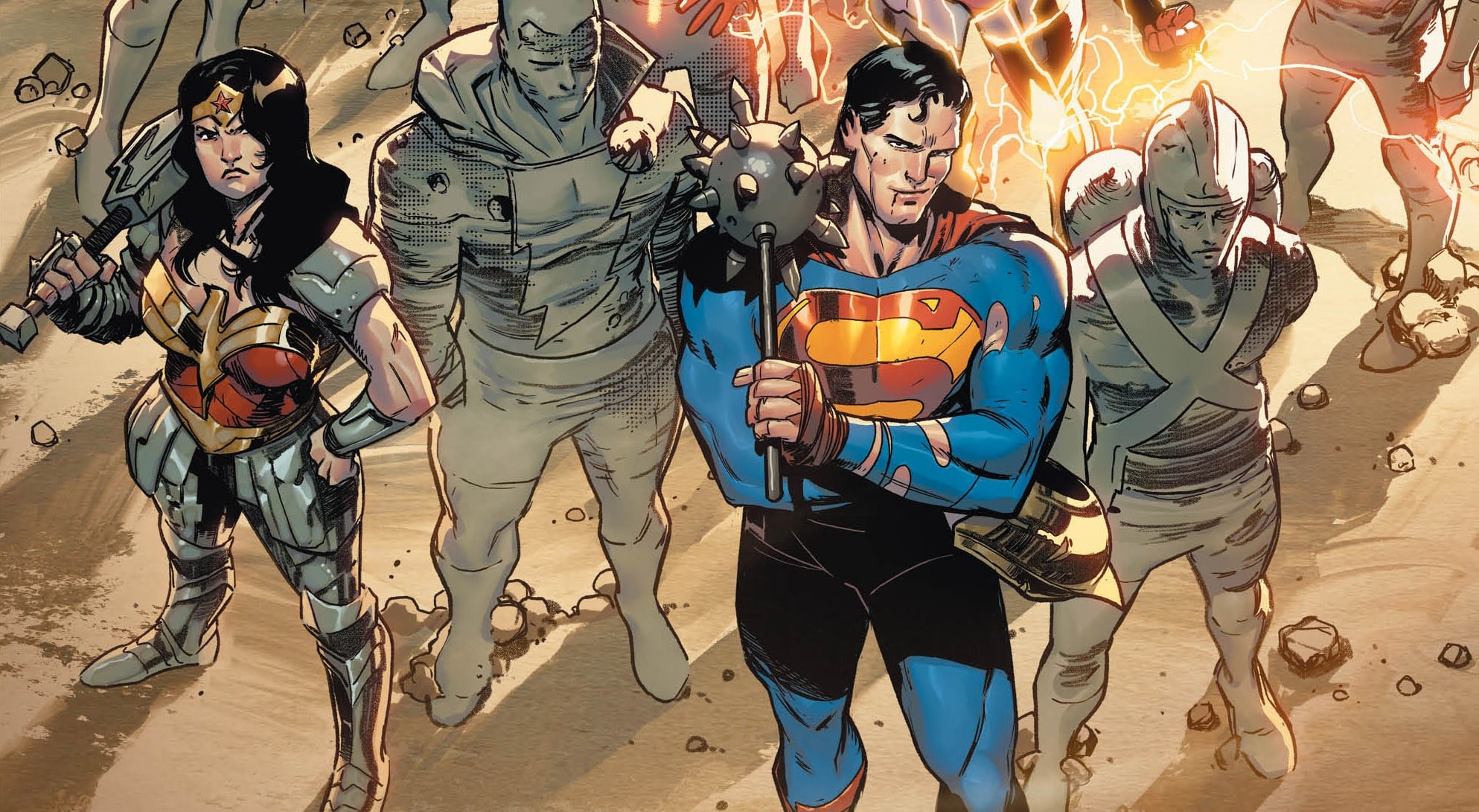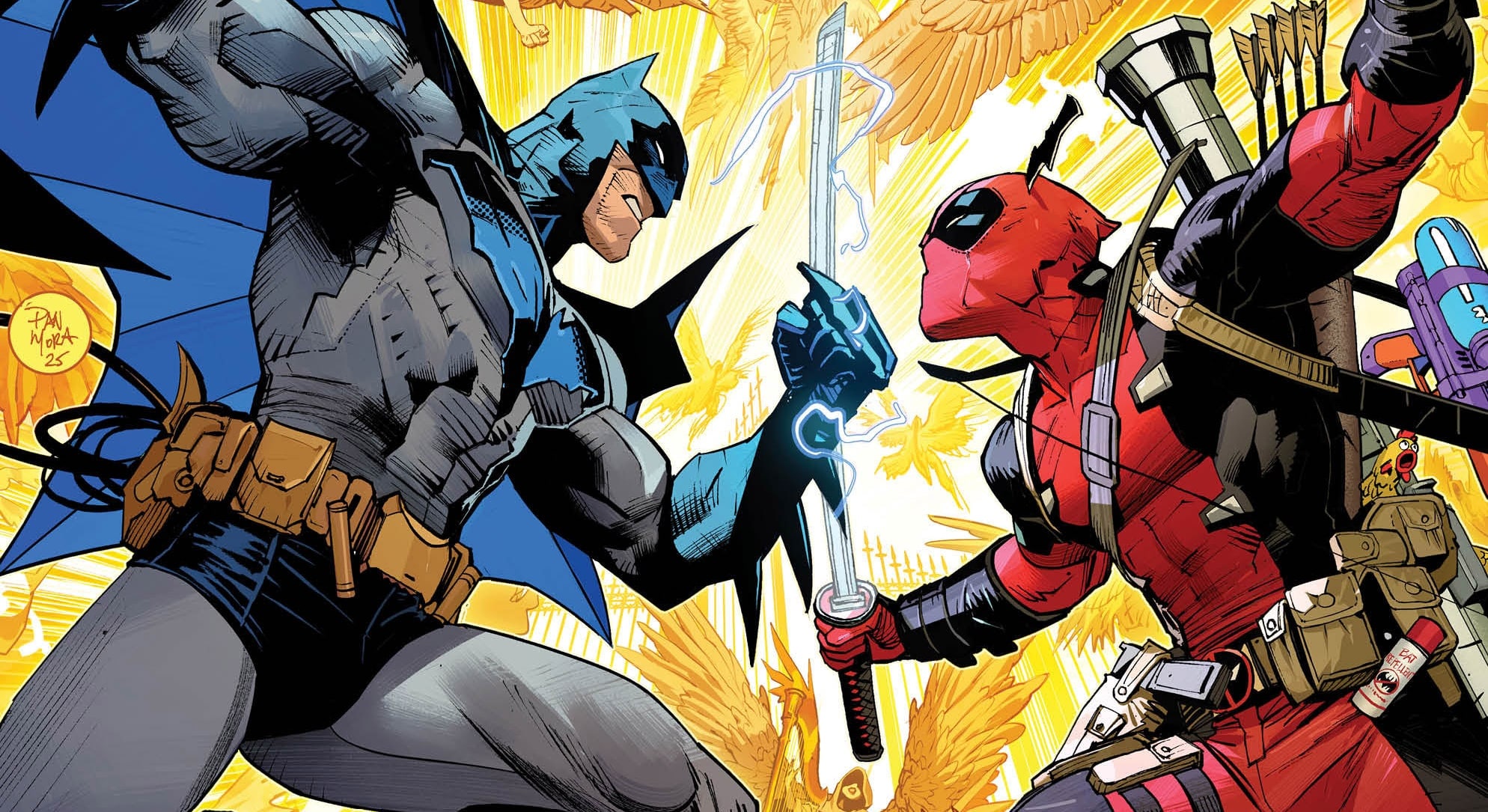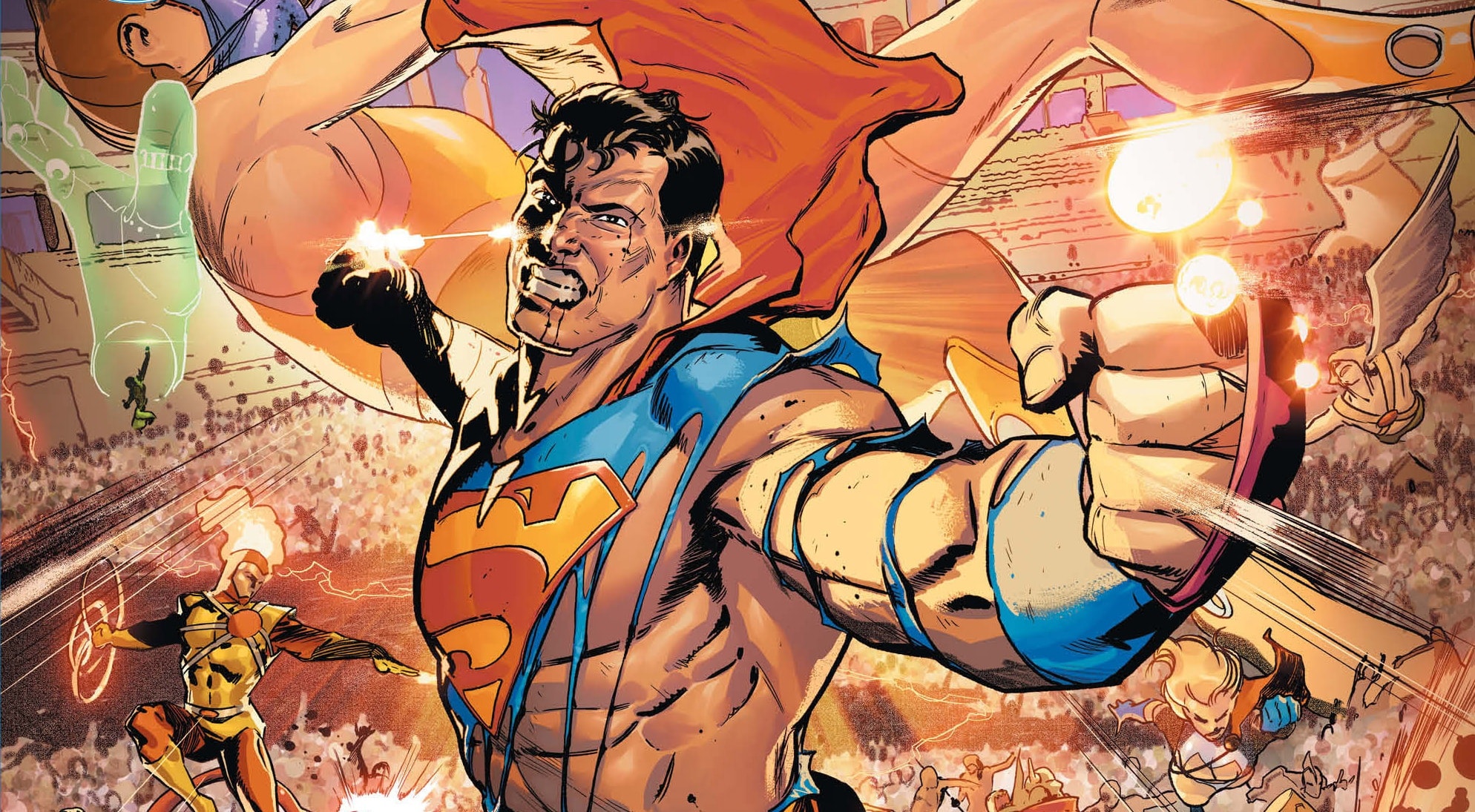Dark Crisis #3 is written by Joshua Williamson, penciled by Daniel Sampere, inked by Sampere, Daniel Henriques and Danny Miki, colored by Alejandro Sanchez and lettered by Tom Napolitano

Half of what’s wrong with this comic can be summed up by this panel. Who the fuck is Lian? No, seriously. Who is she? Has she ever been mentioned prior to this issue in this story? Is she supposed to be someone who’s important to this story? If so, why hasn’t she been mentioned prior to this panel. For that matter, who the hell are these two? They have never once been mentioned, discussed, or even appeared in Dark Crisis before we got to this point, and yet they’re given an entire panel dedicated to the two of them. There’s not even a “Here’s the tie-in you need to read in order to get the thread that this panel is alluding to” caption box. It’s just a contextless panel that exists on this page.
This is a problem if you are interested in Dark Crisis as a story. If you’re just here as a loyal DC lifer, you know that these two are Roy Harper and Jason Todd, two also-ran sidekicks who are most assuredly heterosexual. You also know that Lian is Roy’s daughter and that she has been appearing in the pages of Ram V’s Catwoman being an actual character as opposed to a four year old whose sole characterisation is that she’s four. She’s considered a fan favorite due to a 90s Titans comic that had the editor of Justice League International suggest replacing everyone with a bunch of kids from a lab. No one ever asks why such a thing would be considered, let alone what it says about that Titans comic.
The point, ultimately, is that the assumption regarding the imagined reader is that they inherently care about the various ins and outs of the DC Universe. They care about the Titans, the Bat-Family, the Marvels, the Supermen, The JSA and all the other parts of continuity. The book doesn’t need to earn the reader’s attention, the reader’s interest, or the reader’s care because it’s an event comic. The only people who need to care already have an investment in DC Comics as a brand. Creators don’t need to sell that this matters. They just need to hit the right beats, invoke the right comics, disavow the wrong ones, and the fans will eat it up.

Even its attempts at moral dilemmas with the chestnut of “Should Heroes Kill” is delivered with the heart and soul of a machine. It asks us to be invested in the argument about whether Supercops should kill or if they should just stick to enhanced interrogation techniques that leave all their bones broken, but still capable of healing so they can escape to do more crime because serialized fiction prefers recurring baddies.
There’s not even a cogent debate provided. It’s just Black Adam going, “ARE YOU A CHILD, SUPERMAN? BE A MAN AND KILL! ALL ADULTS KILL! IN THE REAL WORLD, YOU HAVE TO KILL OR YOU’RE A CHILD! HOPE IS NOTHING IN THE FACE OF THE REAL WORLD! I AM A SERIOUS ADULT AND SO I’M GOING TO KILL THIS MAN TO PROVE THAT WE MEAN BUSINESS BECAUSE I AM AN ADULT!” while everyone else just stands by and watches him scream at Superman.
The argument against it is nothing more than just “superheroes don’t kill.” There’s no moral weight to either of these arguments. No thoughts about the ethics of extrajudicial murder. There’s just empty signifiers like hope or doom or darkness or light. Because Dark Crisis simply doesn’t care about those sorts of things. It doesn’t even care about being a story. Only the vague outline of fiction remains.

Note the scene where the Justice League decides to quit. There’s no real impetus for the League quitting here. No reason to do so. The only reason they quit is because this is the moment in the story where the heroes split up due to feeling like there’s nothing they can do. And then the big damn heroes come and inspire the world to stand up and have hope™!
And Josh Williamson, to his credit, does a competent job at hitting these beats. It’s just that… is that really all we want out of fiction? Mere competency? A story that hits the beats you expect it to, but never risks anything? That reminds you of all your favorite characters, but doesn’t care to introduce them to anyone else. Because comics like this aren’t for anyone else save the people who would care that the comic is now called Dark Crisis on Infinite Earths. Like that changes anything.
Dark Crisis is just a twiddling of thumbs while the next event is prepared for. And the next. And the next. And so on and so forth ad infinitum. Its competence lays the machine bare for us to see. But that’s all it is: a machine. A formula to tell the perfect event comic without the care needed to make it actually be about anything. There’s barely anything here to review. It’s nothing.
Stray Thoughts
- OH MY GOD, THEY WENT WITH THE MEME FONT!

- What in seven fucks is this bullshit?

- The Justice Society’s presence in this book proves that no one here actually gives two shits about the future. They’re a superhero team defined by the fact that they’re old has-beens who quit after it became too tough for them to deal with the issues of the world. Every year they get older, every historical moment they ignore before returning in the modern day highlights their failure. And before you say that they aren’t a political team, I’d like to note that they formed to fight in World War II, an explicitly political event. Where were they when people were being murdered in Vietnam, Iraq or the People’s Park? Twiddling their thumbs? And to top it all off, they’re extremely patronizing here, with Wildcat explicitly saying “These kids should’ve called us from the start.” Because the future must always bend a knee to the past.
Matt Lazorwitz read his first comic at the age of 5. It was Who's Who in the DC Universe #2, featuring characters whose names begin with B, which explains so much about his Batman obsession. He writes about comics he loves, and co-hosts the podcasts BatChat with Matt & Will and The ComicsXF Interview Podcast.

